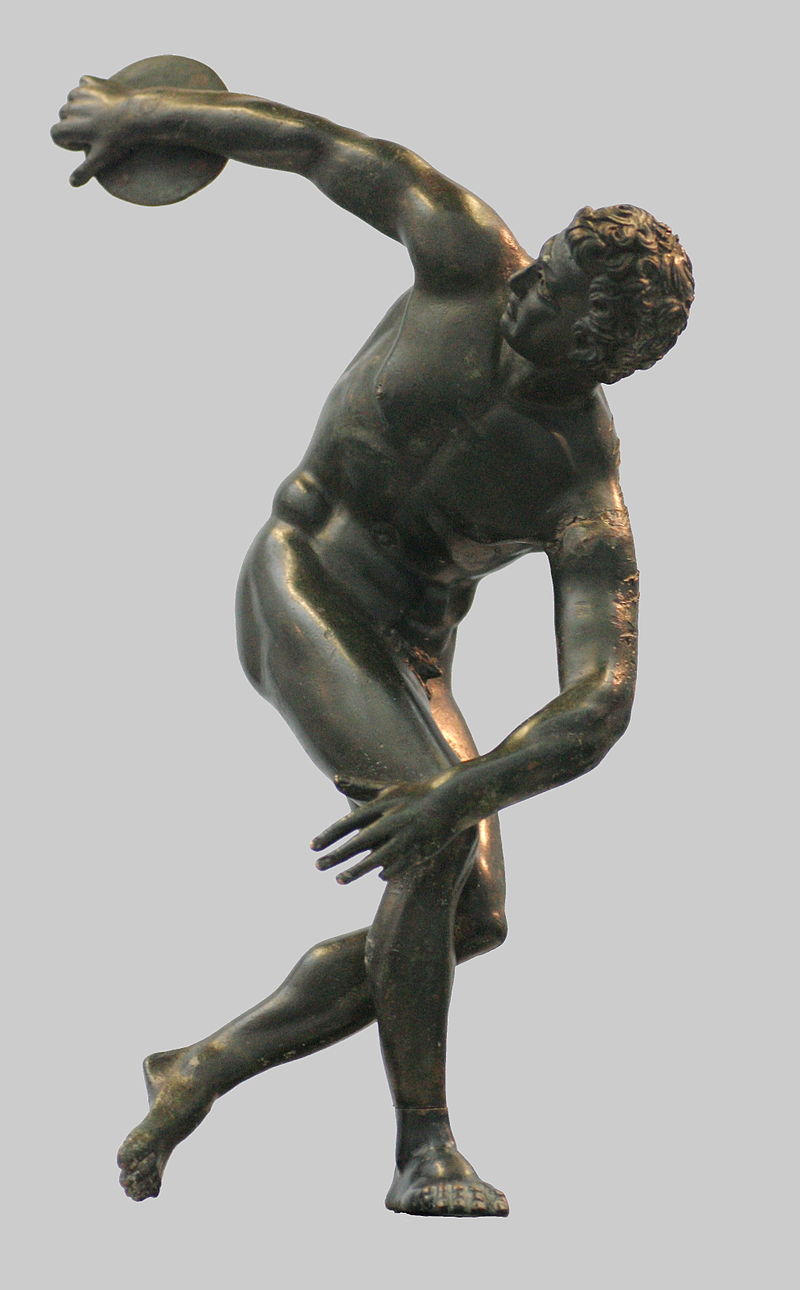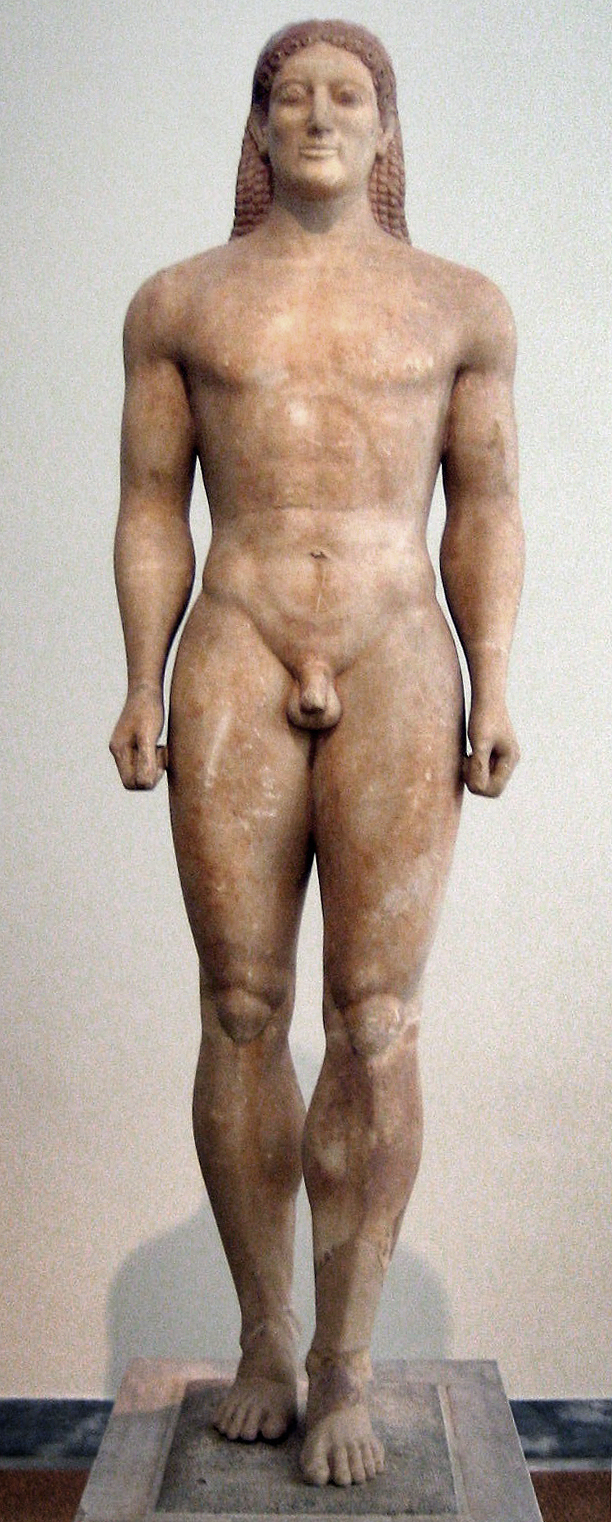Why Study the Male Form?

Why study the Greek male form today? What could these statues, though beautiful, mean to us - we modern people of the 21st century? Certainly, the statues are pleasant to look at, incredible examples of Greek craftsmanship, and so on - but have they any real bearing on our modern lives? As Ian Stewart laments, Greek art has become "a curiosity for tourists to gawk at, merchants to profit from, collectors to hoard, museums to display, postmodernists to pillage, and academics to argue about". It seems as though the art of the Greeks, while meaning a great deal to them, has come to mean little to us.
The athletic prowess of the Greeks has fallen out of favor. The musculature possessed by the Greek athlete of old has no bearing on our lives now. Such muscles are useless to the modern man, who increasingly remains seated and motionless, working behind a desk. The toil of modern man is not found on the field of battle or in the gymnasium, but rather, in the mind. For the deskworker, the body is relegated to nothing more than a support system for the continued function of the brain. Even in athletics, where the body should be glorified, the body exists only to serve the spectacle. Todays sports are not meant to be played but rather to be seen. Even a beautiful body is no longer interesting in itself, but rather only exists for others to gawk at and enjoy, a process facillitated and amplified by social media.
The body no longer exists for itself - the body is no longer an object in itself, but only exists as a means for the accomplishment of some goal - be that winning a sports competition, sex, or as advertisement for some product.
The modern aesthetic of the athletic body can seem irrevocably commercialized, objectified and sexualized. Although they appear almost constantly in the media, rarely are athletes the subject of high art these days - much less the imagined embodiment of divine ideals. But does this imply that we are no longer capable of associating them with the aesthetic ideals of Classical Greece? Is athletic beauty now completely removed from the moral and educational ideal of kalokagathia?-Heather Reid - Athletic Beauty in Classical Greece: A Philosophical View
So then, is the Greek conception of the body finished? Can the body no longer be noble, be art? Perhaps we ought to ask Socrates.
In Book Three of Xenophons Memorabillia, Socrates is speaking with a youth who is out of physical shape. Socrates tells him he needs some exercise, and the young man replies that he is not in training, and is an amateur at physical exercise. Socrates explains all the bad things that can happen to someone in poor physical condition, from death or capture in war to being unable to help your friends, as well as the benefits of physical health, and how much easier the toil of exercise is as opposed to the hardships of having a weak body.
But all these things are merely intended to convince the young man of the benefits of exercising, to seduce him to exercise. Socrates then explains the real use of the body:
Because our city does not practise military training in public, that is no reason for neglecting it in private, but rather a reason for making it a foremost care. For be you assured that there is no contest of any sort, nor any transaction, in which you will be the worse off for being well prepared in body; and in fact there is nothing which men do for which the body is not a help.-Xenophons Memorabillia
He explains that even the intellect is affected by the body, in that madness and forgetfullness take advatage of physical weakness to strike at the rational brain. A man in good physical health has no need to worry about such things, as he has done all he can to prepare his body to defend against such catastrophes. But the greatest thrust of his argument, in my eyes, comes last:
It is a base thing for a man to wax old in careless self-neglect before he has lifted up his eyes and seen what manner of man he was made to be, in the full perfection of bodily strength and beauty. But these glories are withheld from him who is guilty of self-neglect, for they are not wont to blaze forth unbidden.-Xenophons Memorabillia
As Socrates tells us, it is a terrible and base thing for a man to never see what beauty he might achieve. Each man owes it not only to himself, but to his state, to his family and to the whole world that he becomes all he can be, achieves all that he can possibly achieve. Even now, where the muscles are useless in day to day life, no man should be an amateur in physical training. And this is why Greek art is still relevant, still holds meaning. Greek statues let us lift up our eyes from our day to day life. These statues serve as reminders of what one can be. They serve as reminders of what men once aspired to. And with their graceful, relaxed stance and unfocused eyes they demand of you the same. As the famous poet Rainer Maria Rilke said of the Kroisos Kouros, there is no place where the immense beauty of these Greek statues does not make demands on you; there is nowhere to hide from their command that "You must change your life."

return